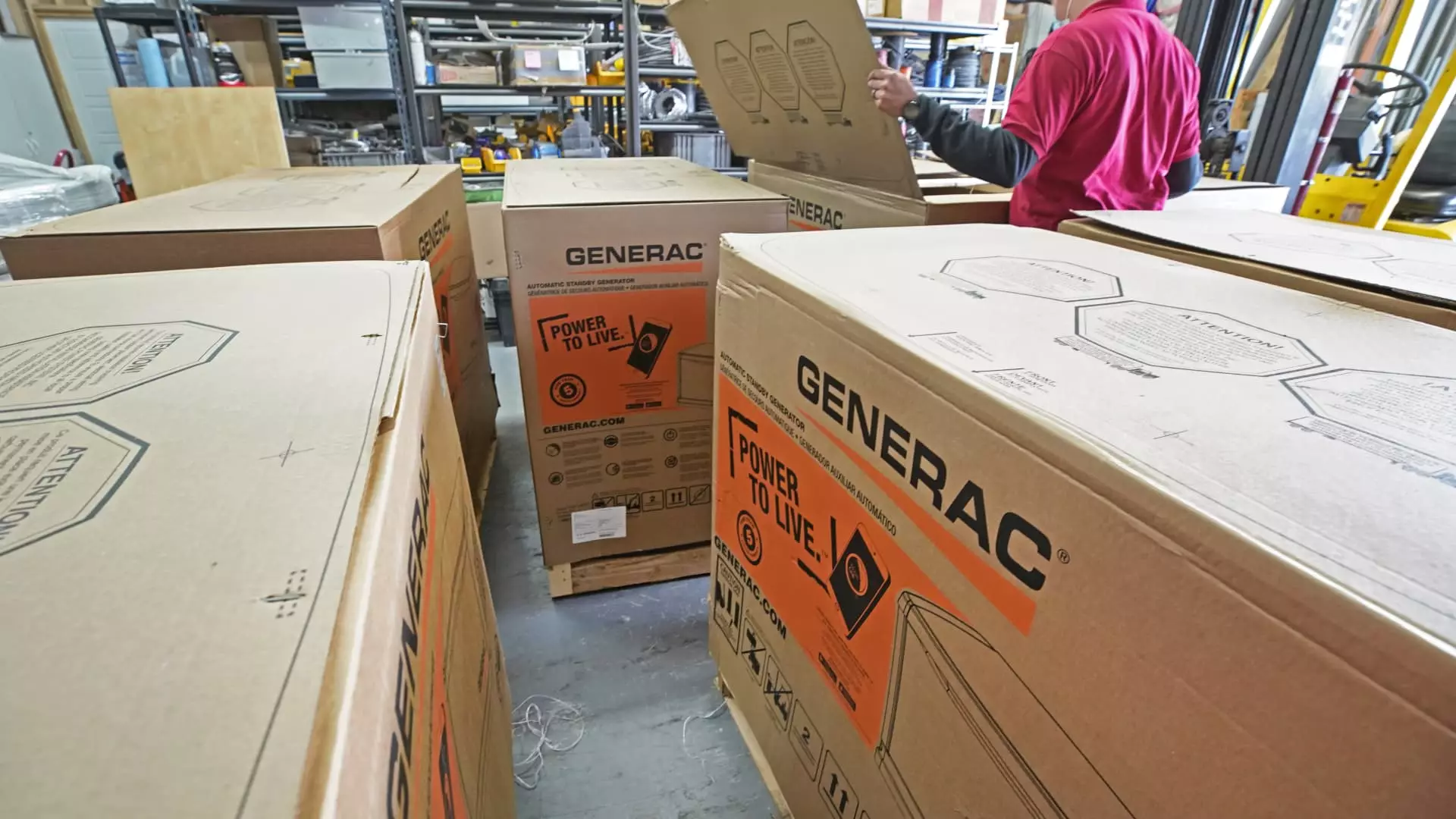As we brace ourselves for yet another tumultuous hurricane season, the spotlight is glaring on Generac, the well-known maker of backup generators. Shares have skyrocketed nearly 12% this week alone, marking an impressive upward trend that has analysts scrambling to make sense of this surge. However, the circumstances driving this popularity warrant a more discerning perspective. The relentless heat waves gripping much of the U.S., coupled with alarming forecasts from the National Oceanic and Atmospheric Administration predicting 13 to 19 named storms this season, must incite caution rather than blind enthusiasm. The investor fever, currently stoked by panic surrounding power outages, could be the classic case of misaligned optimism derived from an urgent need to address failures in infrastructure rather than genuine growth potential.
Pressure on Aging Infrastructure
The U.S. electrical grid has long been on the brink of collapse. With approximately 130 million individuals facing extreme heat warnings, reports of outages from New York to Illinois raise serious concerns about our outdated energy systems. While Generac may be enjoying a favorable moment in the stock market, real questions linger about whether their products are truly solutions or just Band-Aids over a much larger wound. CEO Aaron Jagdfeld’s assertion that severe weather coupled with data center demands are placing unprecedented stress on the grid is worth noting. This situation represents not just a temporary spike in demand but a symptom of a systemic failure—a failure that may only worsen in the years to come. Independent of Generac’s stock performance, the truth is that we need a comprehensive overhaul of our energy infrastructure, not just a fixation on generator sales.
Climate Change Fallout
The link between climate change and increased electrical demand can’t be ignored. A recent study by the Pacific Northwest National Laboratory and the Electric Power Research Institute made clear that the risk of outages due to climate-induced hurricanes could increase by upwards of 50%. This statistic alone should challenge the idea that investing in Generac is a foolproof bet. If socio-political pressures prompt a larger discussion on climate policy, the rush to invest in backup generators may soon be viewed as an ill-timed pivot toward fossil fuel dependency rather than a sustainable solution. Are investors prepared for the possibility of regulatory changes or shifts in market dynamics that could make Generac’s offerings less attractive?
The Broader Market Dynamics
Bank of America’s forecasts indicate that electrical demand is projected to grow at a 2.5% annual compound rate through 2035, which generally sounds promising. However, merely looking at projections without considering the ramifications of climate action and policy shifts overlooks critical nuances. Furthermore, while utilities may benefit from increased demand, they are already grappling with their own set of risks, as highlighted by the preference for laggard companies that have catalysts for growth. The notion that companies like Sempra and NorthWestern Energy can drive value amid this chaotic environment remains speculative at best.
Beware of the Hype Cycle
It’s crucial for investors to acknowledge the psychological facets of market behavior. The current frenzy surrounding Generac and similar stocks is not dissimilar to previous investment bubbles fueled by fear and urgency. While the soaring stock prices create an alluring narrative, a more scrupulous assessment of actual security is necessary. Are investors merely riding a wave of hysteria, or is there something fundamentally robust about these businesses? Tethering one’s financial future to a company bolstered by short-term events often evolves into a precarious gamble rather than a sound investment strategy.
Concluding Thoughts on a Ticking Time Bomb
The impending natural disasters and power shortages stemming from climate change might indeed line Generac’s pockets, but those same conditions present significant long-term risks. The narrative of short-term gain glosses over the broader implications for our energy policies and social responsibility. Coping with climate chaos should foster a shift toward innovative, long-lasting energy solutions rather than an overeager investment in a generator company that benefits from a fragile infrastructure. In the end, the race for profit must be tempered with a responsible, forward-thinking approach toward sustainability that holds companies accountable and redefines market investment standards.

